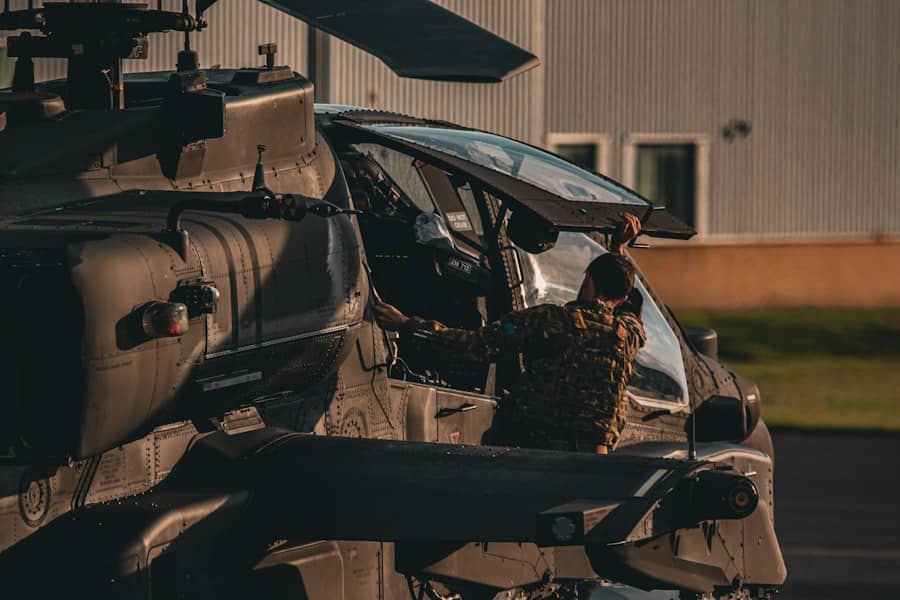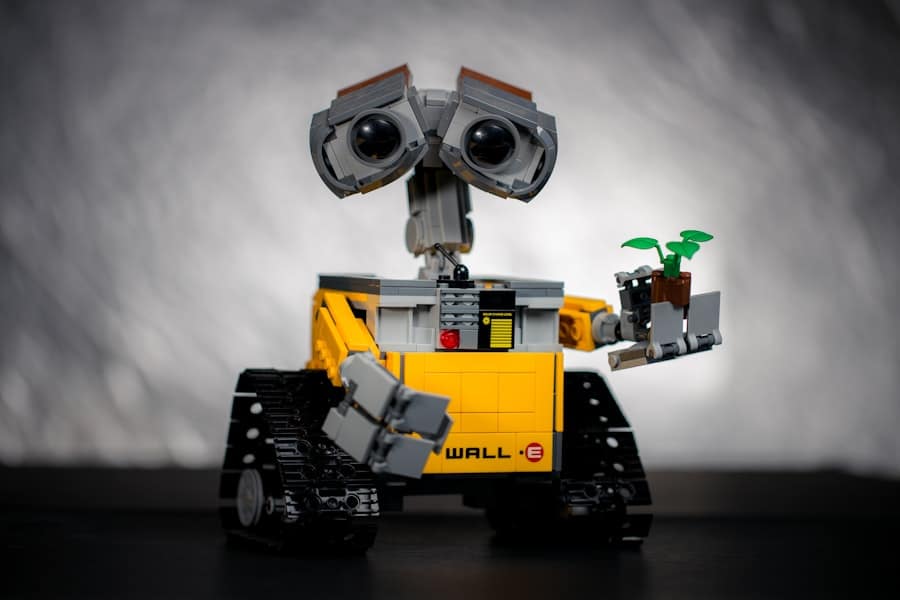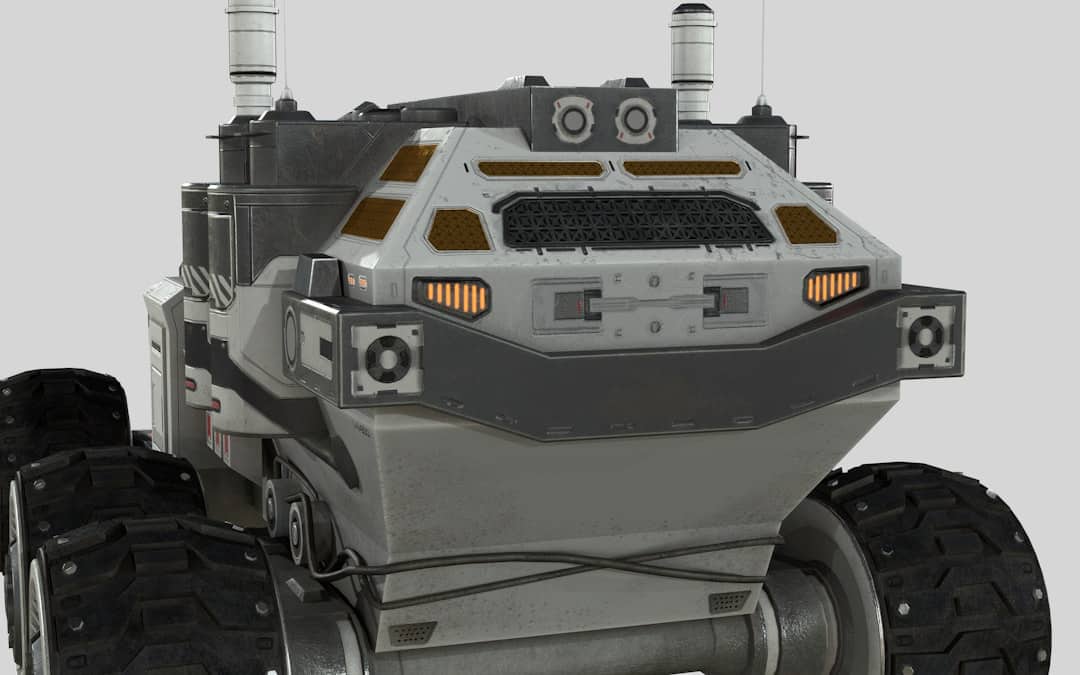The development of autonomous weapons systems represents a significant leap in military technology, characterized by the ability of machines to operate independently in combat scenarios. These systems, often referred to as “killer robots,” utilize artificial intelligence (AI) and machine learning algorithms to make decisions without human intervention. The evolution of autonomous weapons has been accelerated by advancements in robotics, sensor technology, and data processing capabilities.
As nations invest heavily in these technologies, the implications for warfare, security, and international relations are profound and multifaceted. The emergence of autonomous weapons raises critical questions about the future of armed conflict. Unlike traditional weapons that require human operators to make real-time decisions, autonomous systems can analyze vast amounts of data and execute actions at speeds far beyond human capabilities.
This shift not only alters the dynamics of battlefield engagement but also challenges existing frameworks of accountability and ethical considerations in warfare. As countries race to develop these technologies, the global community must grapple with the potential consequences of their deployment and the ethical dilemmas they present.
Key Takeaways
- Autonomous weapons development is advancing rapidly, raising concerns about their impact on human rights and humanitarian law.
- International law plays a crucial role in regulating the use of autonomous weapons and ensuring compliance with ethical standards.
- Ethical considerations in the use of autonomous weapons include questions about accountability and the potential for unintended consequences and collateral damage.
- Developers and users of autonomous weapons have a moral responsibility to consider the implications of their actions and prioritize transparency and accountability.
- The debate on the morality of autonomous weapons continues, highlighting the need for ongoing discussion and regulation in this area.
The Impact on Human Rights and Humanitarian Law
The introduction of autonomous weapons systems poses significant challenges to the protection of human rights and the principles enshrined in humanitarian law. One of the core tenets of international humanitarian law is the principle of distinction, which mandates that combatants must differentiate between military targets and civilians. Autonomous weapons, however, may struggle to make such distinctions accurately, particularly in complex environments where human presence is intermingled with military objectives.
This inability could lead to increased civilian casualties and violations of fundamental human rights. Moreover, the deployment of autonomous weapons raises concerns about accountability in instances where these systems cause harm. If an autonomous weapon mistakenly targets civilians or engages in unlawful acts, determining liability becomes problematic.
The developers, military commanders, or the state deploying the technology? This ambiguity undermines the enforcement of humanitarian law and could lead to a culture of impunity where violations go unpunished.
The potential for widespread human rights abuses necessitates a reevaluation of existing legal frameworks to ensure that they adequately address the unique challenges posed by autonomous systems.
The Role of International Law in Regulating Autonomous Weapons

International law plays a crucial role in regulating the development and use of autonomous weapons systems. Existing treaties, such as the Geneva Conventions and their Additional Protocols, provide a foundation for the legal standards governing armed conflict. However, these frameworks were established long before the advent of advanced technologies like AI and robotics.
As such, there is an urgent need for international legal instruments specifically tailored to address the complexities introduced by autonomous weapons. Efforts are underway within various international forums to establish norms and regulations governing autonomous weapons. The United Nations Convention on Certain Conventional Weapons (CCW) has been a focal point for discussions surrounding lethal autonomous weapons systems (LAWS).
In recent years, states have convened to explore potential regulations that could include prohibitions on fully autonomous systems or requirements for meaningful human control over their operations. The challenge lies in achieving consensus among nations with differing perspectives on military innovation and national security priorities. The development of robust international legal frameworks is essential to mitigate risks associated with autonomous weapons while ensuring compliance with humanitarian principles.
Ethical Considerations in the Use of Autonomous Weapons
The ethical implications of deploying autonomous weapons systems are profound and complex. One major concern is the moral agency of machines; can a machine be held accountable for its actions? Traditional ethical frameworks in warfare emphasize human judgment, empathy, and moral reasoning—qualities that machines inherently lack.
The delegation of life-and-death decisions to algorithms raises questions about the moral implications of removing human oversight from critical military operations. Furthermore, the use of autonomous weapons may desensitize societies to violence and warfare. As machines take on roles traditionally held by humans, there is a risk that the gravity of combat will diminish in public perception.
This detachment could lead to a normalization of violence and an erosion of ethical standards surrounding warfare. The potential for machines to engage in combat without human empathy or understanding complicates the moral landscape, necessitating a thorough examination of how society defines acceptable conduct in armed conflict.
The Potential for Unintended Consequences and Collateral Damage
One of the most pressing concerns regarding autonomous weapons is their potential for unintended consequences and collateral damage. The reliance on algorithms to make split-second decisions can result in catastrophic errors, particularly in dynamic environments where variables are constantly changing. For instance, an autonomous drone tasked with identifying enemy combatants may misinterpret civilian movements as hostile actions, leading to tragic outcomes.
Moreover, the unpredictability inherent in AI systems raises concerns about their behavior in unforeseen circumstances. Machine learning algorithms can evolve based on their experiences, which may lead them to develop strategies that diverge from their original programming. This unpredictability could result in scenarios where autonomous weapons act outside established rules of engagement or humanitarian principles, further complicating efforts to minimize harm during armed conflict.
The potential for collateral damage underscores the necessity for rigorous testing and validation processes before deploying such systems in real-world situations.
The Moral Responsibility of Developers and Users of Autonomous Weapons

The moral responsibility associated with the development and use of autonomous weapons extends beyond military commanders to include engineers, programmers, and policymakers involved in their creation. Developers must grapple with the ethical implications of their work, recognizing that their innovations could have life-altering consequences for individuals and communities around the world. This responsibility necessitates a commitment to ethical design principles that prioritize human safety and compliance with international humanitarian law.
Furthermore, military users of autonomous weapons must also consider their moral obligations when deploying these systems. The decision to utilize autonomous technology should not be taken lightly; it requires careful consideration of the potential risks and consequences involved. Military personnel must be trained not only in the technical aspects of operating these systems but also in understanding the ethical dilemmas they may encounter on the battlefield.
Fostering a culture of accountability within military organizations is essential to ensure that operators remain vigilant about the implications of their actions when using autonomous weapons.
The Need for Transparency and Accountability in Autonomous Weapons Development
Transparency and accountability are critical components in addressing the challenges posed by autonomous weapons systems. As these technologies become increasingly sophisticated, it is essential for developers and military organizations to operate with openness regarding their capabilities, limitations, and decision-making processes. Transparency fosters public trust and allows for informed discussions about the ethical implications of deploying such systems.
Moreover, accountability mechanisms must be established to ensure that those involved in the development and use of autonomous weapons are held responsible for their actions.
By prioritizing transparency and accountability, stakeholders can work towards building a framework that mitigates risks associated with autonomous weapons while promoting adherence to international norms.
The Debate on the Morality of Autonomous Weapons
The morality of autonomous weapons remains a contentious topic within academic, political, and public discourse. Proponents argue that these systems can enhance military effectiveness by reducing human casualties among soldiers and increasing precision in targeting operations. They contend that when designed responsibly, autonomous weapons could minimize collateral damage and improve overall operational efficiency.
Conversely, critics raise profound ethical concerns about delegating life-and-death decisions to machines devoid of moral reasoning or empathy. They argue that allowing machines to engage in combat fundamentally alters our understanding of warfare and diminishes accountability for actions taken during conflict. This debate reflects broader societal questions about technology’s role in shaping human behavior and values, particularly concerning issues as grave as war and peace.
As discussions surrounding autonomous weapons continue to evolve, it is imperative for stakeholders—including governments, civil society organizations, and technologists—to engage in meaningful dialogue about their implications. By fostering an inclusive conversation that considers diverse perspectives on morality, ethics, and legality, society can work towards establishing a framework that balances innovation with responsibility in the realm of military technology.
In the ongoing discourse surrounding the ethics of autonomous weapons development, it is crucial to consider the technological advancements that parallel this field. For instance, the exploration of cutting-edge features in consumer electronics can provide insights into the broader implications of technology in society. An article that delves into such advancements is Exploring the Features of the Samsung Galaxy Book Odyssey. This piece highlights the integration of sophisticated technologies in everyday devices, which can serve as a microcosm for understanding the potential and challenges of implementing advanced technologies in more critical areas, such as autonomous weapons.
FAQs
What are autonomous weapons?
Autonomous weapons are systems that can identify, target, and attack individuals or objects without human intervention. These weapons can operate on land, in the air, or at sea.
What are the ethical concerns surrounding autonomous weapons development?
The development of autonomous weapons raises ethical concerns about accountability, the potential for misuse, and the ability to comply with international humanitarian law. There are also concerns about the lack of human judgment and empathy in the decision-making process of autonomous weapons.
What are the potential risks of autonomous weapons?
The potential risks of autonomous weapons include the loss of human control over the use of force, the potential for indiscriminate targeting, and the escalation of conflicts. There are also concerns about the potential for autonomous weapons to be hacked or to malfunction, leading to unintended harm.
What are the arguments in favor of autonomous weapons development?
Proponents of autonomous weapons argue that they can reduce the risk to military personnel, improve precision in targeting, and enhance the speed and efficiency of military operations. They also argue that autonomous weapons can be programmed to comply with international humanitarian law.
What is the current status of international regulations on autonomous weapons?
There are ongoing discussions at the international level about the regulation of autonomous weapons. Some countries and organizations have called for a ban on fully autonomous weapons, while others have advocated for the development of international regulations to ensure the responsible use of these technologies.

